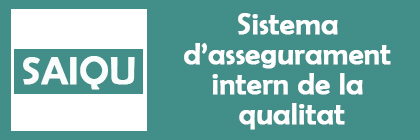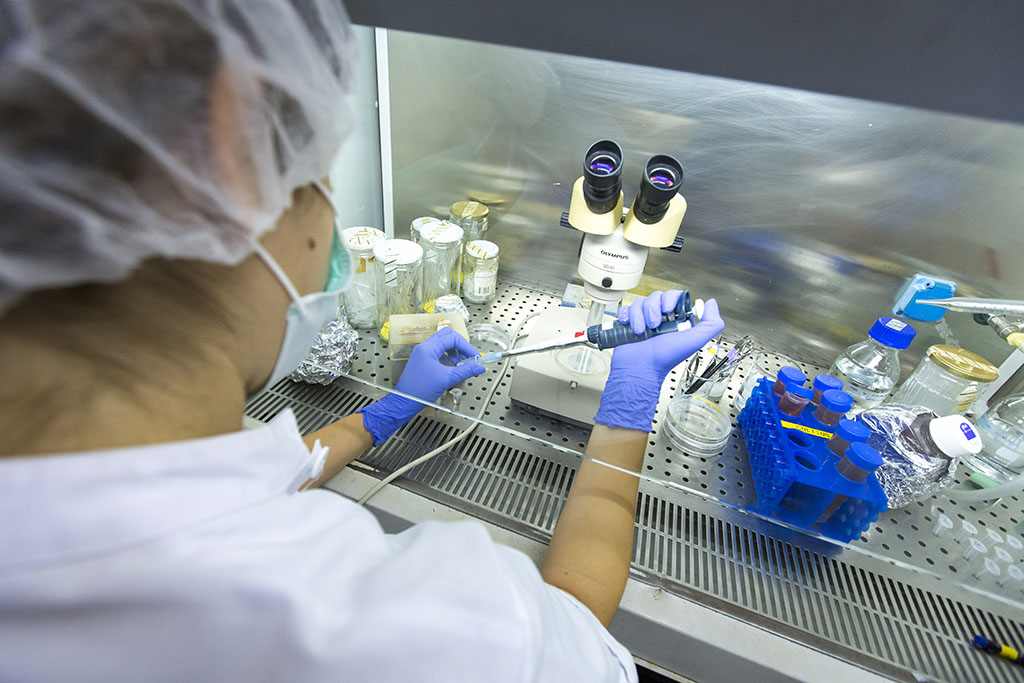Biomedical Sciences
Welcome from the Dean
The Faculty of Medicine and Health Sciences (FMiCS) at the University of Barcelona dates back more than 250 years. It was not until 1906 that it moved to its current site, in the historical building in Carrer de Casanova, which, together with Hospital Clínic de Barcelona, makes up the Medicine Campus. In 1980, it was expanded with the addition of new premises next to Bellvitge Hospital. The Bellvitge Health Sciences Campus was built, which includes the Faculty of Dentistry and the University School of Nursing. In 1993, the Faculty added the Sant Joan de Déu Campus in Esplugues de Llobregat.
Today, the Faculty offers six EHEA bachelor’s degree courses: Biomedical Sciences, Biomedical Engineering, Nursing, Medicine, Dentistry and Podiatry.
The FMiCS includes three university hospitals, eight partner hospitals, 22 primary care centres, various extended care facilities, and a mental health centre, equipped with the necessary infrastructure for teaching and research (libraries, computer rooms, study rooms, practical and research laboratories, clinical skills laboratories, clinical simulation facilities and dissection rooms). This integrated teaching system optimizes the relationship between patients and students to deliver the best possible hands-on training.
At the postgraduate level, the Faculty offers 13 university master’s degrees, numerous UB-specific master’s degrees and other postgraduate courses. The Faculty’s doctoral programmes are also very important: each year, around 200 high-quality doctoral theses are defended at the FMiCS. The Faculty has agreements with various companies and institutions for its more technological or research-oriented courses.
It also actively participates in various highly regarded biomedical research structures, including the August Pi i Sunyer Biomedical Research Institute (IDIBAPS), the Bellvitge Biomedical Research Institute (IDIBELL), the Josep Carreras Leukaemia Research Institute (IJC), the UB Institute of Neurosciences, and the Barcelona Institute for Global Health (ISGlobal). The combination of research conducted within the school’s degree courses and through collaboration between its professionals allows the Faculty to pursue top-quality translational research, the results of which directly benefit patients.
Finally, the FMiCS also offers courses for students over the age of 60 on the Bellvitge Health Sciences Campus as part of the University of Experience.
The excellent work of the Faculty’s service, teaching and research staff has made it the top-choice school for many degree courses, with the highest cut-off marks in Catalonia for most of the degree courses it offers, as well as the leader in Spain and one of the top schools in the EU in various independent international rankings.
We are also one of the top Spanish faculties in terms of the percentage of students passing the Medical Residency Entrance (MIR) exam and securing residencies. UB students can usually be found amongst the top 100 students accepted for medical internships and residencies.
The Faculty’s teaching and research staff and its administrative and service staff strive to work together to offer the best possible service to students. This human capital is crucial to making the UB’s FMiCS a modern, cutting-edge school, able to meet the expectations of passionate, highly engaged students, including through an extensive international exchange programme with prestigious universities around the world.
As members of a public institution, both the teaching and research staff and the administrative and service staff have important responsibilities and duties to society. To fulfil them, the FMiCS works closely with healthcare institutions and professional associations to ensure that our programmes produce the kinds of graduates society needs in the various healthcare professions, which is the real challenge for any faculty of medicine and health sciences.
Of course, we also face many other challenges. We must demonstrate our ability to consistently make the necessary changes (e.g. by introducing new teaching technologies, including virtual reality and simulations) and suitably plan for the generational turnover in both teaching and research and administrative and service staff. We must strengthen respect for gender equality and firmly combat any form of discrimination at the FMiCS, whilst seeking new ways to facilitate work-life balance. We must ensure we have appropriate spaces and manage them as efficiently as possible. We must be a leader in the fight against climate change, ensuring energy sustainability and respect for and improvement of the environment. And, finally, we must be even more open to society, listening carefully to what the people around us have to say and allowing them to take part in our hopes, problems and projects. Our university’s motto (Libertas perfundet omnia luce) must also help endow us with a more global, realistic and supportive vision of the world and our society in particular.
At the FMiCS, and in all healthcare professions, we must work and act in accordance with the highest standards of ethics, transparency and accountability.
The keys to co-existence at the Faculty are respect, tolerance, autonomy and the utmost commitment of all its members.
Cooperation and solidarity amongst students, polite and friendly treatment of all people, and learning empathy and all the other core values of healthcare professionalism are both key objectives and basic requirements to enjoy the many opportunities the Faculty offers all its members.
We want to train good people, who are also outstanding, committed and ethical professionals.
The year 2019 marked the 50th anniversary of the first moon landing. In 1962, the US president John F. Kennedy delivered a speech at Rice University (Texas) in which he laid out a worldview that is still fully valid and applicable to the everyday work performed at the Faculty, to all of our members and, especially, to all of our students today. He said:
We choose to go to the moon…
We choose to go to the moon in this decade and do the other things,
not because they are easy, but because they are hard;
because that goal will serve to organize and measure the best of our energies and skills,
because that challenge is one that we are willing to accept, one we are unwilling to postpone,
and one we intend to win, and the others too.
For these same reasons, we work hard every day to do everything we know how, can and want to do to benefit the Faculty and, ultimately, the society to which we are indebted and which we serve.
You are now part of our great family.
Welcome!
Antoni Trilla
Dean of the Faculty of Medicine and Health Sciences
July 2019




